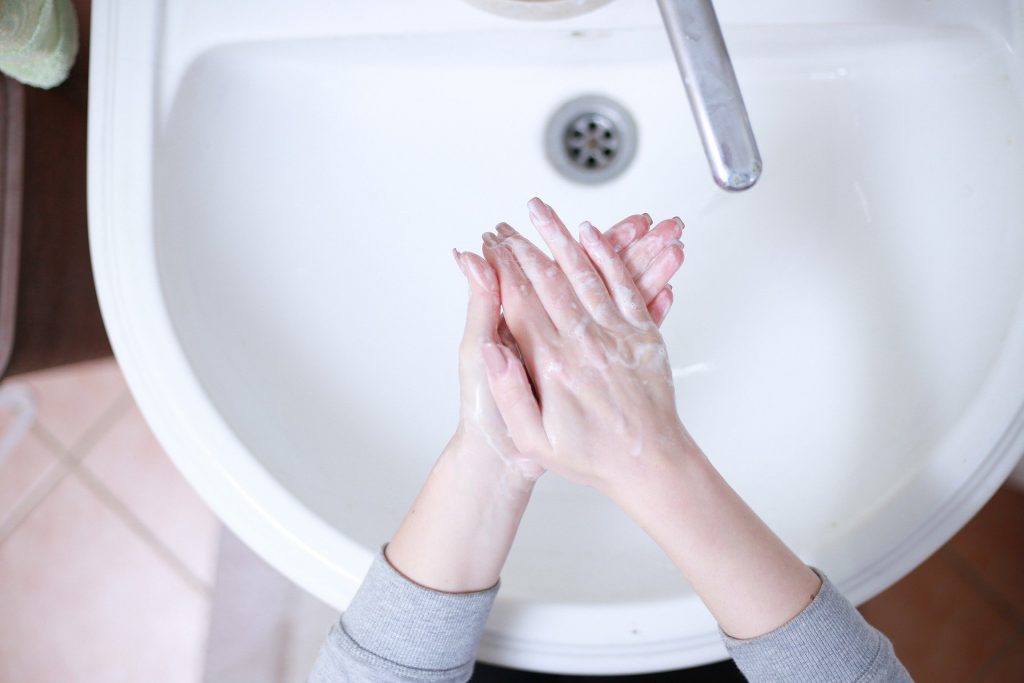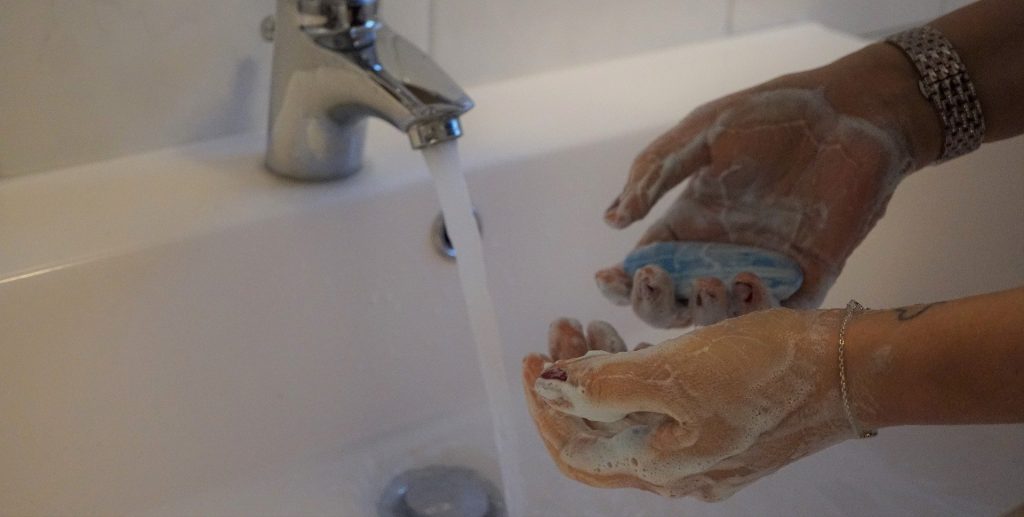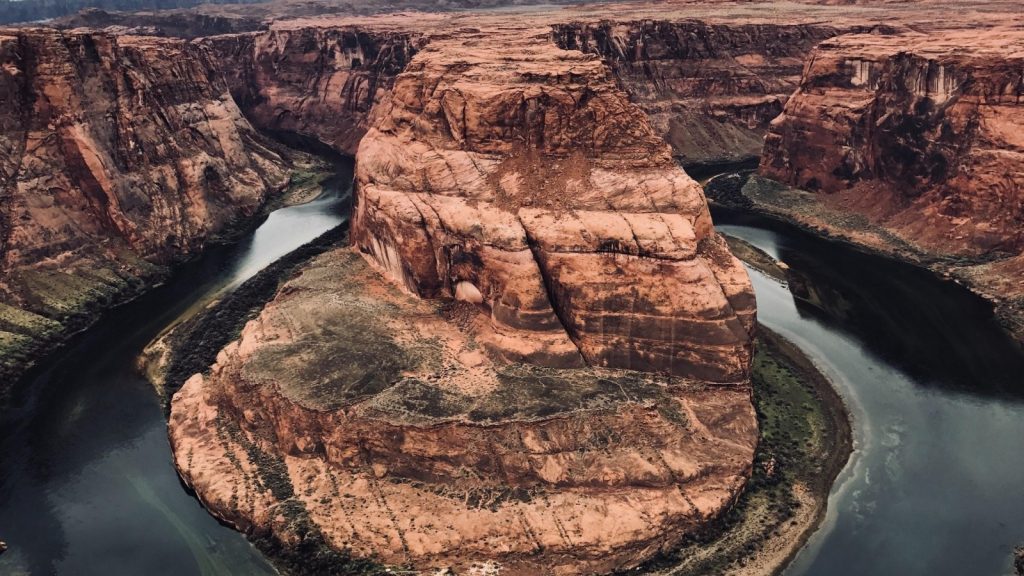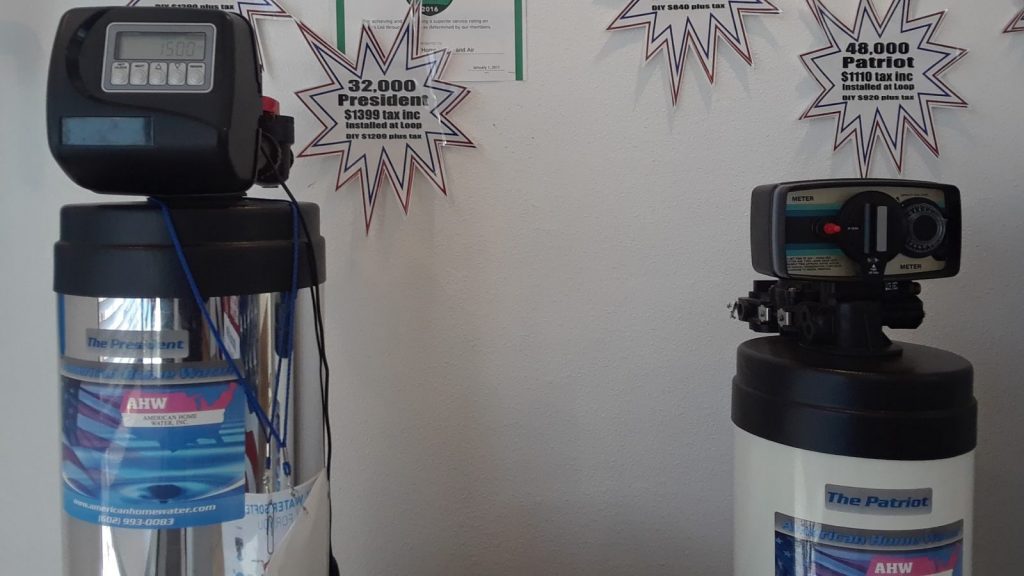Dealing with the effects of hard water can be exhausting. Your laundry doesn’t get clean, you have to work extra hard to clean your bathroom, and there are soap spots in your glassware. Maintaining your house becomes a total headache. However, water hardness is not the only issue, contaminants in your water can also be damaging to your health. That’s why today we will tell you all about two types of filtration systems, water descaler vs water softener. Both can help you solve these problems, but which one is perfect for your home?
There are several differences between a descaler vs a softener, but before taking an in-depth look into how each one works, you need to understand what water hardness is. If you have ever experienced hard water problems, you know this water causes build-up on your surfaces and damages your appliances. But, it is vital to learn exactly what hard water is, to tackle the problem.
Hard water is the type of water that carries calcium and magnesium minerals. There are different levels of hard water, depending on the area that you live in. These levels go from soft to very hard, and their official measure is grains per gallon (GPG). To find out your water hardness, you could call your municipality or purchase a test kit online.
Once you know your water hardness level, this information will help you choose between a descaler vs water softener. We understand that this decision can be overwhelming if you don’t know what to look for or the main differences. Don’t worry. Here you will find everything you need to know about water softener vs water descaler, starting with their benefits.
Descaler vs water softener: What are the benefits?

Descalers and water softeners deal with hard water and scale deposits in their own way, using different techniques. Depending on your hard water level, you might prefer one over the other, but here we will tell you the benefits you will enjoy with either of them.
These systems will protect your plumbing system and your appliances from wrecking. This means no more costly regular repairs. Also, having a water softener or a descaler will improve your health and skin appearance.
The best part is that cleaning your house from now on is going to be quick and easy since you won’t have to deal with the calcification that hard water creates on your surfaces. These are the benefits that you will find with both filtration systems.
Now that we have looked at the similarities of these systems. It is time to analyze their different features to decide which one is the best option for your household.
Water Descalers vs Water softener: Main Difference
Before getting into the process of a descaler vs a water softener and which system is better for specific circumstances, you should learn the differences between a water softener vs descaler.
The main difference between these systems is that a water softener will eliminate all the hardness in your water, which means your GPG count will end up in zero. A water descaler will not reduce your GPG count but rather prevent all the secondary effects of hard water.
Also, a water softener vs a descaler will need more space in your home. A water softener needs two tanks to work while a descaler is smaller and has fewer limitations regarding location.
A water softener will need regular maintenance while a descaler needs minimal checks. But you can always ask your water company to create a schedule for you. To learn more about the types of water softener and their maintenance, click here.
Descaler vs. Softener
Water Softener
A water softener consists of two tanks. One that has resin beds, and the other is the brine tank. Through ion exchange, your water softener will change the chemical composition of the water.
First, your house’s incoming water will enter the tank with the resin beds charged with sodium ions. When the water goes through the resin beds, they will trap the calcium and magnesium minerals and replace them with sodium. When your resin beds are filled with minerals, the brine tank will create a solution to clean them. This process is called regeneration.
The brine tank needs bags of salt to create the solution and charge the resin beds with sodium. Although the amount of sodium in your water is minimal, if you have a low sodium diet, we recommend using potassium instead of salt.
With a water softener, the water’s taste will change, you will have lather again, and there won’t be any more soap scum. Then in which cases is it better to use a water softener vs a descaler.
When is it better to use a water softener?
Even though you can get a water softener for any household, there are specific situations in which getting a water softener is your only choice.
- In Phoenix, Arizona, and other areas where hard water is common, water softeners are used to reduce the concentration of minerals in the water. This is important because it can make the water safe to drink, as high concentrations of minerals can negatively affect the taste and safety of the water. The “is phoenix tap water safe to drink?” question can be answered with a resounding yes – thanks to water softeners, the tap water in Phoenix is safe to drink.
- When your appliances and pipes are wrecking due to the water quality in your region.
If you decide to purchase a water softener, you need to keep in mind that you will have to spend more money on their maintenance and salt bags for the brine tank. Also, there would be more water consumption because your water softener will need it to clean the resin beds during the regeneration process. However, you should know that a water softener brings more benefits than disadvantages to your home.
Water Descaler
As we mentioned before, a descaler vs a softener will not eliminate the minerals that produce hardness in water. That’s why most people also call water descalers, water conditioners. A water descaler’s main task is to prevent the calcium and magnesium minerals from creating build-ups and scale deposits, apart from eliminating contaminants in water.
To accomplish this, a water descaler uses several types of technologies. Some can be magnets placed in your pipes; others use a low voltage current. The last ones will create crystals that avoid scaling in your surfaces, this is known as templed crystallization.
The first two types of water descalers will use a magnetic field to charge the minerals, forcing them to stay within the water.
Even though a water descaler will offer you the same advantage as a water softener, in terms of cleaning the house. The bottom line is that the water that runs through your plumbing system is still hard water that could break down your appliances.
It is true that with a descaler, you will expend less money in installation and maintenance, but the truth is that the ultimate decision will depend on your priorities.
When is it better to use a water descaler?
- If you want an eco-friendly system that helps you conserve water and doesn’t produce much waste.
- When you have a small budget for your water filtration system and your income won’t be enough to pay for the maintenance of a water softener.
Water Descaler vs Water Softener: Final Thoughts
When it comes to determining the best water filtration system for your home, one common question is whether reverse osmosis water is the same as distilled water. The answer is no – while both systems produce purified water, the processes used are different. If you want an easy system to maintain and the water hardness in your area is not high, you can purchase a water descaler. But, if you have a high level of water hardness that disrupts your daily activities, the best choice is a water softener.
[related_posts_by_tax posts_per_page="3" format="thumbnails" image_size="medium"]









